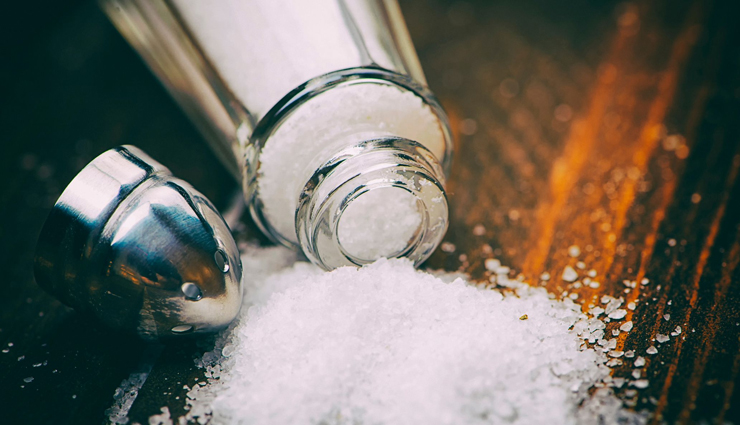- Home›
- Healthy Living›
- 5 Major Signs Of Salt Deficiency In Your Body
5 Major Signs Of Salt Deficiency In Your Body
By: Kratika Maheshwari Mon, 18 July 2022 4:54:55

Our body is a complex system nourished by various nutrients and minerals; an excess or deficiency of any essential element can take a toll on our health. Sodium is one such essential nutrient. Your body needs a certain amount of sodium in order to function well; it forms an integral part of your circulatory system and ensures a sufficient tissue perfusion. It also allows nutrients and minerals to move into your cells from the blood vessels.
We get most of the Sodium the body needs from everyday salt. Too much or too little salt in the body can have adverse effects on your well-being. Have you ever wondered what happens when your body is short of salt? How much salt do you really need in a day? And finally, how can you find out if your body is salt deficient? We have got all the answers for you.

Salt is 40% sodium and 60% chloride. So when we discuss about the salt recommendation, it is majorly due to the sodium intake. Sodium is an important electrolyte in the body and is essential for life. In fact, no mineral is more important than sodium; it is a nutrient that cannot be produced naturally by the body. Many foods like eggs, meat, milk etc. contain sodium but the major amount comes from our daily salt.
Major health organisations including World Health Organisation (WHO) recommend not more than 2300 mg of sodium per day which roughly comes to one teaspoon of salt per day.
We always worry about high intake of salt but on the contrary, even low salt intake can serious implications. Some of these implications include depression, weakness, nausea, vomiting, cramps, headache, irritability, confusion etc. Serious deficiency can even lead to seizures, coma and in some cases it may be fatal too.

# Headaches
Your nervous system requires sodium to function and when the levels of sodium drop, it can lead to severe headaches.

# Nausea and vomiting
This is your body’s way of getting rid of the excess water which is causing an imbalance in the sodium level.

# Confusion
Your nervous system is quite dependent on the sodium levels in order to send messages through its neurons. If you are deficient, chances are your brain will not be able to receive the message and further cause confusion.

# Fatigue
If your body is short of sodium, then your blood’s ability to deliver nutrients and flush the waste may get hampered, which may further cause fatigue.

# Muscle weakness and cramps
If your muscles do not get rid of the waste products, like excess lactic acid because of your low blood sodium levels, there is chance that the waste products may cause cramps and spasms in the various parts of the body.
While it is good to keep a balance, you should also ensure that you are not loading up on processed foods that contain a good amount of sodium. So considering the current lifestyle of any adult these days, salt intake needs to be taken care of as it could have a direct impact on our health.





